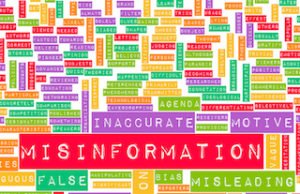Facebook teems with people angry about their bad restaurant meals or a fellow citizen’s sloppy driving. Before the advent of social media, they may have simply left a penny for a tip or shaken their fist at the errant driver. Today, however, they dump their anger directly onto the Internet. Lucky us!
Welcome to the strange new world of online shaming… where no misdeed goes unpunished, forgiveness is a dirty word, and measured response is an antiquated concept. And it’s a world that can be especially dangerous to financial advisors whose mistakes, imagined or real, can motivate clients to wage online vendettas.
What exactly is this phenomenon? According to Wikipedia, online shaming is defined as “a form of Internet vigilantism in which offenders are publicly humiliated using social and new media. Proponents of shaming see it as a form of online participation that allows hacktivists and cyber-dissidents to right injustices. Critics see it as a tool that encouragesonline mobs to destroy the reputation and careers of people who made perceived slights.”
Internet shaming became popular when people began spreading nasty comments about “annoying” celebrities such as Anne Hathaway and Justin Bieber. But the practice spread to ordinary citizens behaving badly. But unlike denigrating celebrities who continue to live charmed lives, shaming ordinary people can be devastating. It can lead to them getting fired, depressed, or even suicidal. And thanks to Google, the Internet establishes an indelible record of their suffering.
How bad can Internet shaming get? Just ask Walter Palmer, the Minnesota dentist who killed the famous Zimbabwean lion named Cecil. Shortly after his lion photo went viral, Palmer’s dental practice receive 8,000 negative “reviews” on Yelp.com. People sent him death threats, mobbed his website, and even threatened to destroy his dental office. Someone even initiated a Change.org petition demanding that he be extradited to Africa to stand trial. Not surprisingly, Palmer went into hiding, putting his dental hygienist and other employees on the street.
And what about Memories Pizza, whose proprietor announced it would no longer cater gay weddings? Internet vigilantes exploded in fury at the restaurant’s perceived bigoty. But that paled compared to its revulsion at Martin Shkreli, the hedge-fund investor who raised the price of a generic drug for AIDS and cancer patients from $13.50 a pill to $750 – an overnight increase of 5,500%, turning himself into perhaps the Internet’s most hated person.
One thing we’ve learned from these events is that the public is quick to take offense and slow to forgive. We’ve also learned that their thought process is pure black-and-white. For example, the fact that Dr. Palmer may not have been personally responsible for luring Cecil away from his protected enclave did not prevent people from piling on after they saw the lion photo.
• See also: Avoiding a reputation mud bath
Furthermore, we’ve discovered that people crave punishments that are more severe than the original offense. When charity worker Lindsey Stone posted a tongue-in-cheek photo of herself shouting and making an obscene gesture in front of a “Silence and Respect” sign at Arlington National Cemetery, it sparked a furious shame storm. Some people called for her to be jailed; others howled for her to be raped or killed. By the evening of the first day, a “Fire Lindsey Stone” Facebook page had received 12,000 likes. Soon, she lost her job caring for adults with learning disabilities, and for the next year, she suffered from PTSD, depression, and insomnia, rarely leaving her house. Did posting an inappropriate photo online deserve such savage retribution?
Perhaps most troubling is that Internet vigilantes don’t draw a distinction between private behavior and professional responsibility. For example, Dr. Palmer was hounded for something he did while on vacation in Africa, not for an error he made as a dentist. Today, people apparently believe a service provider should be morally upstanding in every respect to deserve their patronage. A single questionable act or statement, and the relationship is history.
How should financial advisors handle this phenomenon? Here are 10 strategies that might help:
1. Recognize that it’s only a matter of time before a client rages about you online. Can you see it now? “Worst financial advisor ever; promised me a six percent return on my annuity but I’m only getting two percent.” Or “my financial advisor is a bum; he got me into a mutual fund that’s failing to beat its benchmark index. What a jerk!” When it comes to financial advisors getting shamed online, it’s not a question of “if,” but “when.” Steel yourself emotionally for future attacks.
2. Take a defensive approach. For example, during your on-boarding process, be sure to explain your commitment to high-quality service. Encourage all new clients to share their problems and concerns with you personally rather than taking their issues online. This will assure that problems get resolved promptly without excess drama.
3. Avoid inappropriate personal behavior or comments directed at clients. All it takes is one careless remark or action for a client to spew resentment online. So always maintain proper business decorum and avoid making comments a client might take the wrong way.
4. Recommit yourself to following the highest standards of business ethics. When making decisions that affect your clients, always put their interests first and act with the utmost integrity.
5. Adhere to all laws and regulations pertaining to your license type. Periodically audit your compliance efforts to make sure you’re not missing anything. And be sure to tap the brains of your FMO and insurance/investment company compliance advisors when you’re not sure how to handle a specific practice or case.
6. Work hard to create a loyal base of satisfied customers and engage with them frequently online. This way, if a shaming event occurs, you’ll be able to quickly rally them to your defense.
7. Build a robust online presence on sites such as Facebook and LinkedIn, and publish frequently on industry news sites as well as on your website and/or blog. Having your own high-quality content online may help to dilute comments from haters.
8. Make sure to actively manage your online presence so you can detect problems immediately. Google Alerts is a tremendous free resource for tracking what people say about you on the Internet, and there are a number of other paid resources, as well.
9. If you ever become the victim of Internet shaming, respond quickly. Apologize immediately and take down the offending post or tweet. This may not prevent others from seeing it, but it may help to contain the damage.
10. Finally, realize that when it comes to preserving your professional reputation, it’s no longer business as usual. To protect your good name and prevent errors-and-omissions insurance claims, keep close tabs on your words, actions, and business procedures. Avoid controversy in your personal life and refrain from posting inflammatory words or pictures on the Internet, especially of lions, pizza, or cemeteries!
• See also: Avoiding a reputation mud bath
Harry J. Lew is Chief Content Officer for the National Ethics Association. For more information on affordable errors and omissions insurance for low-risk financial advisors, visit EOforLess.com. For information on ethical sales practices, please visit the National Ethics Association’sEthics Center.














Excellent suggestions and warnings on online reputation management. Every business needs to check the business name as well as checking your name online to see what people are saying about you.
Considering my niche, I have a decent internet presence. Not thousands of “followers” but enough to get some traction and attract the RIGHT kind of eyeballs.
In 10+ years of cultivating an online presence I only recall being flamed once.
Rather than fight, I removed the post that a former client considered a violation of his privacy rights, when in fact, he would have been the only one who recognized the identity of the subject.